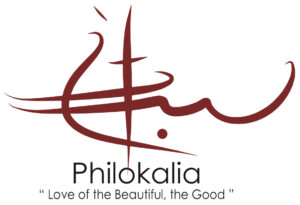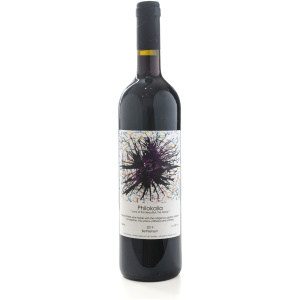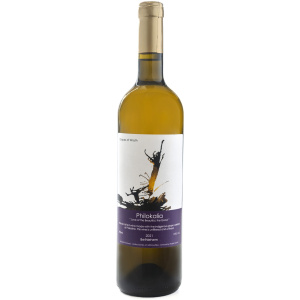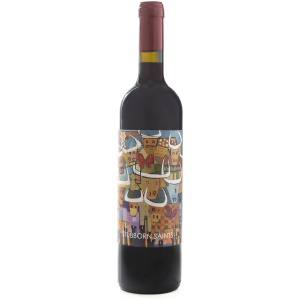Man walks this Earth in search of his place; for if he was born in this world then there must be a place for him, somewhere, some time. This place has often been for me somewhere where working with the hands was involved.
The name “Philokalia” (meaning: Love of the Beautiful, the Good) reflects the intention behind this winemaking effort, which was established in 2015 and is currently in its 5th vintage.
Bethlehem, Palestine
Craftsmanship: There’s a particular beauty to working with the hands that only dedicated artisans seem to know and experience. It never ceases to amaze me how one can elevate, what can to many be, a basic and mundane activity, into a powerful moment of consciousness, giving a fine expression to simple things; baking a loaf of bread, tending to a vineyard, or even cleaning a window. Winemaking is one of those meditative crafts that can involve all of one’s senses and sensibilities, and forces one more so into the rhythm of nature, especially if the wines are made more naturally and without relying on chemical additives. Yes, “wine” is a romantic term in the eye of the consumer, yet the wine industry is a world full of hidden “solutions.”
Abundant color underneath the shades of grey: I met Nasser Soumi in 2005, and again in Paris in 2008, a Palestinian artist and wine connoisseur/researcher. He spoke to me about Palestine’s rich wine history; The domestication of the grapevine and olive tree by the Nattoufians in the 7th millenium BC, the wine jars found in the tombs of the Pharaohs originating from Palestine, Gaza wine merchants in Bordeaux in the 7th Century A.D, and I wondered why our colorful history is covered over by the greyness of the present moment.
Learning by any means necessary: Pascal Frissant, a winemaker from the Loire Valley and Languedoc-Rousillon (France), shared Nasser’s dream for a winery in Palestine for the last 30+ years. A sort of “paysan-philosophe” (peasant-philosopher) who took me deep into the essence of the winemaking experience, he also discouraged me from going to winemaking school… “You have method, memory and meticulousness; anything else (technical) we’ll be glad to help”… I discovered this to be so true and necessary as I went about my winemaking effort through little-documented and rare native Palestinian grape varietals.
Throughout my wine travels between 2011 – 2018, through some of the best wineries in the (old) world, I learned that behind great wines there are almost always exceptional people, and what started as a way of learning about the intricacies of winemaking became more so a means to feed one’s soul… and so, I make the wine, but with time the wine-making experience is making me.
“Santé!”: I enjoy wines with little or no sulphite additions, and I also dislike enological additives, preferring to enjoy a purer expression of wine and the subsequent emotions… all the way to the morning after! Good wine is first made in the vineyard, and I am often amazed at how some of these farmers have a deep sense for the evolution of the vine during the growing season. With persistence, I asked the local farmers how is it that grapes have been produced here for more than 8000 years without chemical pesticide… and in the process, I learned how infusions made with wild herbs were used to treat grapevines.
Clay Jars of ancient times: These are not tools for the sake of nostalgia and story telling; they are incredible, yet labor-intensive, tools that help to give a more elaborate expression to the finished wine. We will be developing their use more consistently with time as our resources evolve.
Relationship between local wines, local cuisine and the local climate: the relatively spicy nature of the local cuisine was an opportunity to explore amber-style wines. These skin-fermented whites are probably some of the most food friendly and versatile wine styles that beautifully complement the local cuisine. The clay jars, instead of oak barrels, help to make a wine that better complements the local cuisine while also maintaining the purity of terroir expression. The wines as such, maintain both local and hopefully international appeal/relevance. Our custom-made clay jars with subsequent in-house research on clay composition has been fruitful, but will require some additional time to reveal it’s full potential.
Experimentation and constant refinement: Philokalia, in its current form, is a modest production of about 5000bts (4th vintage, both wines and spirits) and growing in both quality and volume with each vintage, working with old, non-grafted and non-irrigated native grapevines (60-105yrs old), producing a series of wines which undergo further refinement with each new vintage, while also producing experimental wines that help to inform future production plans. The current experience has indicated further potential for new wines, including those from our own vineyards from 2019 onwards.
Method to the madness: Constant practical and theoretical research, learning from both historical and contemporary winemaking methods from around the Mediterranean and Palestine in specific, working with local farmers, exploring scattered old plots, testing their potential and improving their condition to produce quality grapes, referring to ancient farming methods that correspond well to climate change and ecological concerns. The research conducted thus far has illustrated that the regional climate would offer more complex and complete wines through the blending of several individual wines (and at times partial co-fermentation methods). The current wines range from two to seven individual grape varietals being used in the individual finished wine.
It’s all about the wines: You, the taster, will find many subtle expressions in these wines; including citrus zest, floral and honey notes, to wild herbs, oriental spices, olives, and perhaps, if you pay attention, the most mythical of all plants, the wild Mandragora… and what you find will depend largely on your palette, previous references and perhaps willingness to give the wines a moment of your time and attention.
Showing all 3 results




